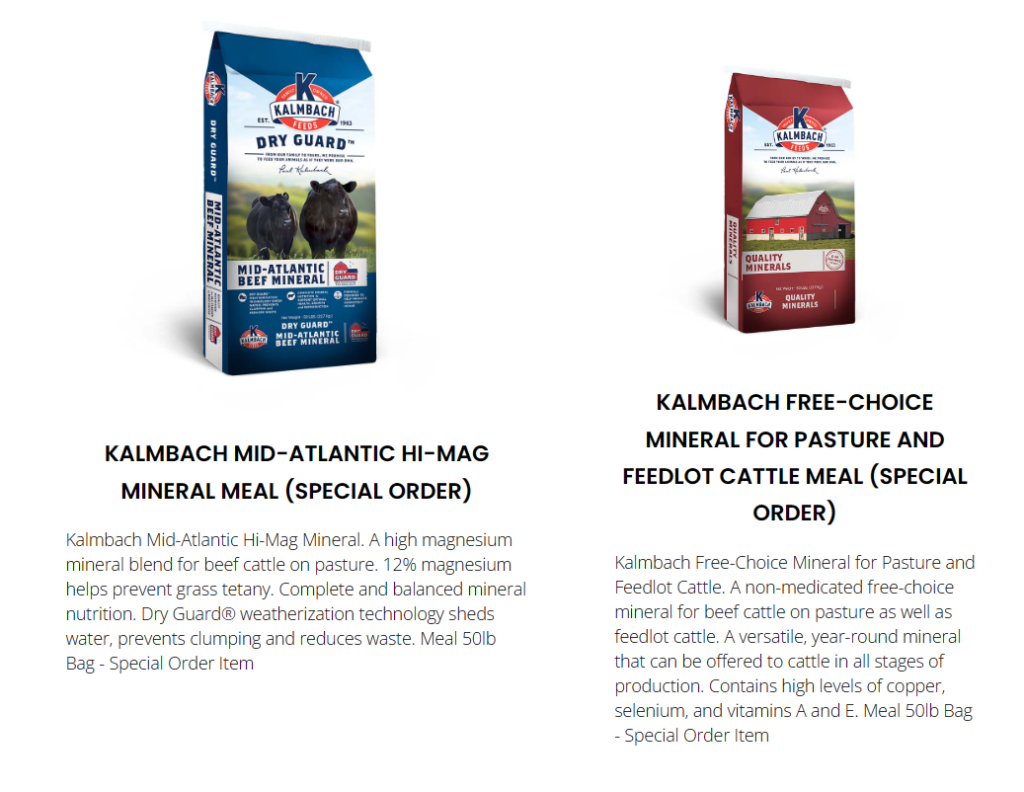As the season transitions to spring, pastures burst to life with lush, green grasses providing our horses and cattle with a bounty of nutritious grazing. At Martin's Feed Mill, we know the importance of this transition and are here to guide you through it. In this blog post, we'll explore the challenges and best practices for navigating the grazing season, focusing on managing horses' metabolic conditions and ensuring proper mineral supplementation for cows. Here are our Grazing Spring Pastures: Essential Tips from the Experts here at Martin’s Feed Mill.
Understanding Horses' Metabolic Conditions in Spring:

Spring brings lush, green pastures filled with nutrient-rich grass. While this is excellent for grazing, it can pose challenges for horses, especially those prone to metabolic conditions like insulin resistance and laminitis. The surge in sugar content in the grass during this time can exacerbate these conditions, leading to potential health issues.
To mitigate the risks associated with high-sugar spring pastures, it's essential to monitor your horses closely and adjust their diets accordingly. Consider introducing grazing gradually, starting with short periods each day and gradually increasing as their tolerance builds. Additionally, supplementing their diet with low-sugar hay or forage can help balance their nutrient intake while allowing them to enjoy the benefits of grazing.
While horses may face challenges with high-sugar pastures, cows have their own nutritional needs, particularly regarding mineral supplementation.
High-Magnesium Mineral for Cows:

Magnesium is a crucial mineral for cows, especially during the grazing season. Adequate magnesium intake helps prevent conditions like grass tetany, commonly occurring when cows graze on lush, rapidly growing pastures.
At Martin's Feed Mill, we offer high-quality mineral supplements specifically formulated to meet the needs of grazing cows. Our high-magnesium mineral blends provide essential nutrients to support optimal health and productivity, ensuring your cows thrive throughout the grazing season.
Best Practices for Grazing Season:

Implementing rotational grazing systems is crucial for maintaining pasture health and productivity, preventing issues like overgrazing and soil erosion. It's essential to monitor your animals' health closely as they transition to pasture feeding, adjusting their diets and management practices as needed to ensure their well-being. Additionally, grazing animals should have constant access to fresh water, particularly during warmer weather when hydration needs increase. Consider supplementing grazing animals' diets with additional nutrients, such as vitamins and minerals, to address deficiencies and support overall health.
As we embrace the transition to grazing, it's crucial to understand and address the unique challenges faced by our animals. At Martin's Feed Mill, we're committed to providing farmers and livestock owners with the knowledge and resources they need to navigate this transition successfully. We can ensure our animals thrive throughout the grazing season and beyond by implementing best practices, monitoring animal health, and providing appropriate supplementation.
For high-quality mineral supplements and expert advice on pasture management, trust Martin's Feed Mill to support your livestock's nutritional needs. Together, let's make this grazing season a success for farmers and animals.
